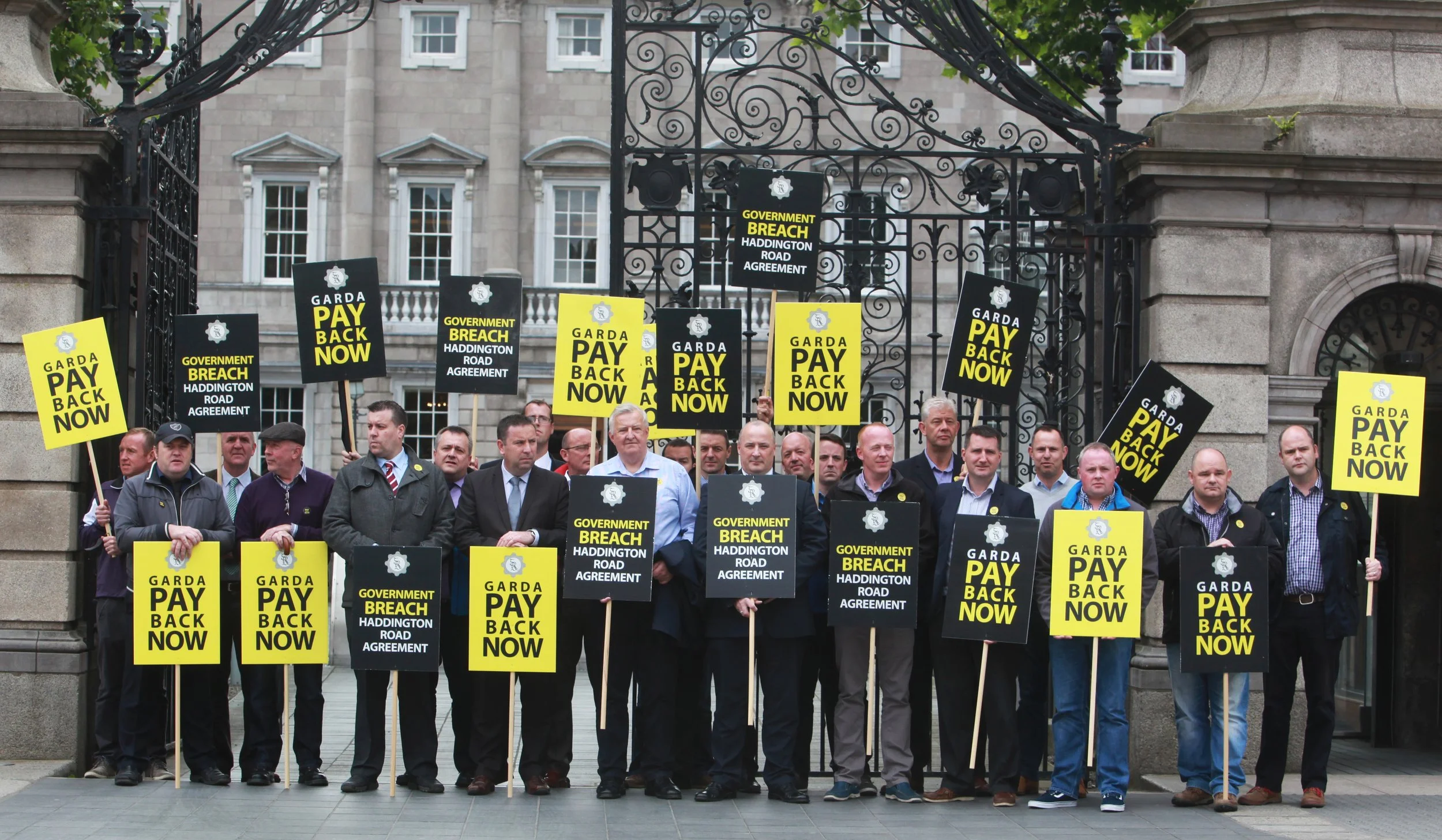Garda Strike Report
In late October it was announced that the Gardaí had planned four days of withdrawal of service in November. Rank and file members of the Gardaí announced industrial action on the foot of disputes over working conditions and wages. Major complaints revolved around these conditions, especially when put in comparison to other civil servants, who Gardaí felt had been treated more favourably. The foremost of these included being the only public servants to work 40 hours per week, that pay for new Gardaí is the worst among civil servants, that they do not have the right to strike, and that they do not have the access to arbitration supports provided by the State that other public servants do. The Gardaí also believe that they should be entitled to more favourable sick-leave policies, given the potential risks involved in their work. A total of 95% of Garda Representative Association (GRA) members voted positively for industrial action. Two-thirds of the union members voted.On the proposed dates, 4 consecutive Fridays commencing on November 4th, the union members planned to withdraw from service, with calls going unanswered in Garda stations and no interactions with members of the public. The GRA had reported that emergency services would still be in operation. In a statement, the GRA said, “We have exhausted every channel of industrial relations open to us. Government has taken advantage of our limited rights. Our members feel that we have nowhere left to turn.”Following an eleventh hour meeting, a halt was called to the first proposed strike by officials from the GRA. Later in the week the 3 remaining work stoppages planned for the month were postponed on the foot of a new proposal from the Labour Court for improving work conditions for rank and file Gardaí. The proposal will go to vote by the 10,500 members of the GRA, and are worth an estimated increase in pay of €3,600 per member. The proposal would also allow them access to the Workplace Relations Commission and Labour Court to resolve workplace disputes. The primary financial benefits in the proposal included a €15 payment for each day of annual leave, to reflect their requirement to attend court even on days off, and an increase of €500 in rent allowance to take effect from 1 January 2017. The Association of Garda Sergeants and Inspectors described the proposal as “a victory.”The deal received by the Gardaí has inevitably triggered fresh demands for similar increases from other public sector unions.While members of the force are legally prohibited from striking, similar actions were taken before in May of 1998 over displeasure with pay conditions; as much as 100% of Gardaí in some areas called in sick to work, on a day later referred to as the ‘blue flu’.


